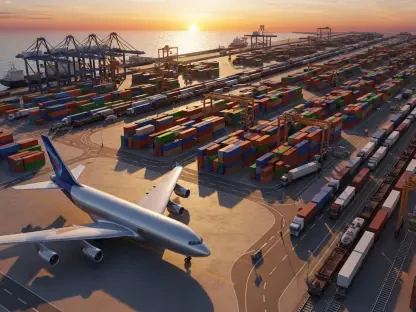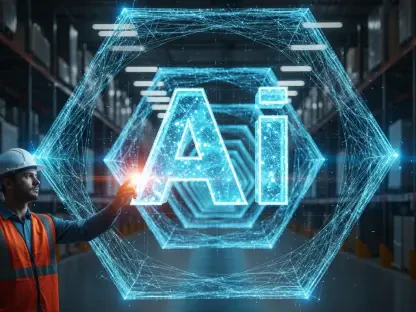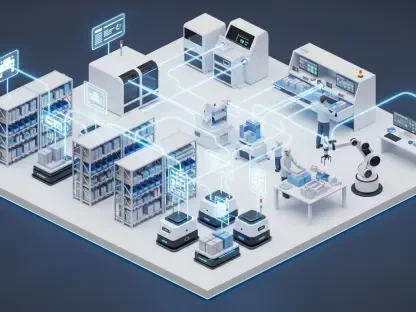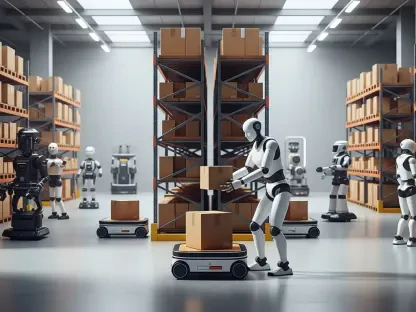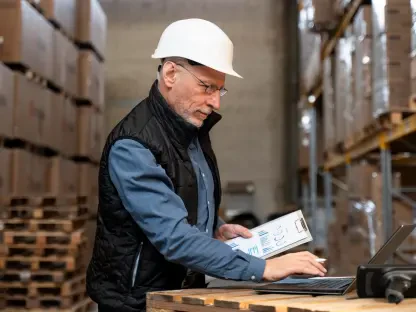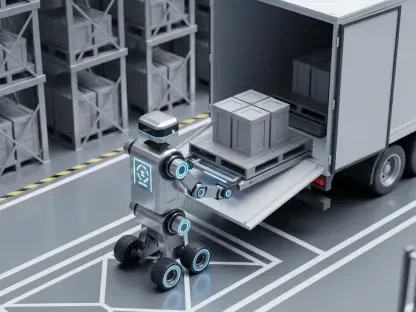In an era where technology evolves at a breathtaking pace, the 11th annual World Internet Conference in Wuzhen, China, emerged as a pivotal stage for unveiling transformative ideas that could reshape economies and lifestyles. With global attention fixed on how artificial intelligence (AI) and smart logistics might redefine work and unleash human potential, this event drew industry titans from JD.com and Alibaba to share their bold predictions. Their presentations not only highlighted cutting-edge innovations but also sparked curiosity about a future where societal norms and productivity challenges could be addressed through these advancements. Held in a hub of technological discourse, the conference set the tone for discussions on how these innovations could shape the world.
Spotlight on a Global Tech Gathering
The World Internet Conference, a cornerstone event for tech innovators, provided a dynamic platform for exploring the intersection of AI and logistics. Hosted in the historic town of Wuzhen, it attracted thought leaders eager to dissect the implications of automation and digital intelligence on global markets. The significance of this gathering lay in its ability to bridge theoretical concepts with practical applications, offering a glimpse into strategies that could soon permeate everyday life. Industry giants from JD.com and Alibaba took center stage, captivating attendees with insights that promised to alter the fabric of economic and social systems.
Beyond the scenic backdrop, the event underscored China’s role as a frontrunner in technological progress. Executives delivered speeches that resonated with urgency, focusing on how their companies are spearheading initiatives to tackle inefficiencies in labor and distribution. Their talks emphasized a shared commitment to leveraging technology for broader societal benefits, setting an ambitious agenda for the global tech community to follow.
Key Moments from Industry Leaders’ Addresses
Liu Qiangdong’s Vision for Logistics Transformation
JD.com Chairman Liu Qiangdong captivated the audience with his concept of a “New Wave of Logistics,” centered on unmanned delivery systems. He detailed plans for innovative delivery stations, slated for rollout in the coming year, which could drastically reduce operational costs. Liu’s forecast painted a striking picture: a world where automation might shrink individual workweeks to mere hours, fundamentally shifting economic dynamics through enhanced profitability.
His perspective extended beyond corporate gains, highlighting a ripple effect on societal structures. By cutting logistics expenses, Liu argued, businesses could channel savings into higher wages, fostering greater consumer confidence. This cycle, he suggested, could redefine economic frameworks, prioritizing efficiency while enhancing quality of life for countless individuals.
Eddie Wu’s Blueprint for AI Empowerment
Alibaba CEO Eddie Wu shifted the focus to AI’s expansive potential, unveiling plans for a “Super AI Cloud” designed to revolutionize productivity over the next decade. His speech emphasized inclusivity, spotlighting Alibaba’s open-source initiatives as a catalyst for global collaboration. Wu pointed to the Qianwen family of AI models, which have already achieved 600 million downloads and inspired 170,000 derivative models worldwide, as evidence of accessible innovation.
Wu’s vision transcended mere technological advancement, advocating for AI as a liberating force for humanity. He stressed that by democratizing access through platforms like Qianwen, Alibaba aims to empower diverse communities to harness AI for unique solutions. This approach, he noted, could unlock unprecedented opportunities, reshaping how industries operate on a global scale.
Convergence of Ideas on Societal Impact
While Liu and Wu approached the future from different angles, their core messages aligned on technology’s capacity to transform lives. Liu’s emphasis on logistics as an economic driver complemented Wu’s broader narrative of AI as a tool for human potential. Together, their presentations underscored a unified belief that automation and intelligence are not just efficiency enhancers but pivotal forces for redefining value in society.
Their combined insights sparked vibrant discussions among attendees about balancing innovation with ethical considerations. The challenge of integrating such disruptive technologies into existing frameworks emerged as a central theme, prompting reflection on how to ensure equitable benefits across diverse populations. This convergence of thought highlighted the conference as a crucible for shaping actionable strategies.
Innovations That Stole the Show
Specific breakthroughs showcased during the event left a lasting impression on the audience. JD.com’s upcoming unmanned delivery stations were presented as a cornerstone of cost-effective logistics, promising to streamline operations in tangible ways. Liu’s detailed overview of these systems illustrated their potential to redefine supply chains with minimal human intervention.
On the AI front, Wu’s discussion of the Qianwen models demonstrated Alibaba’s commitment to fostering a global innovation ecosystem. The sheer scale of adoption—evidenced by millions of downloads—underscored the practical impact of their open-source strategy. These unveilings positioned both companies as pioneers, offering concrete examples of how their visions are already taking shape in real-world applications.
Reflecting on a Transformative Event
Looking back, the World Internet Conference in Wuzhen stood out as a landmark moment for the tech industry, with JD.com and Alibaba executives charting a bold path forward. Their speeches illuminated the profound possibilities of AI and smart logistics, from slashing work hours to driving economic vitality. The event not only showcased China’s leadership in innovation but also set a benchmark for global collaboration in addressing modern challenges.
As the dust settled on this impactful gathering, the focus shifted to actionable next steps. Stakeholders must now prioritize frameworks that ensure these technologies benefit diverse communities, mitigating risks of inequality. International partnerships and policy dialogues will be critical in translating these visionary ideas into sustainable progress, paving the way for a future where technology truly serves humanity’s broader aspirations.


